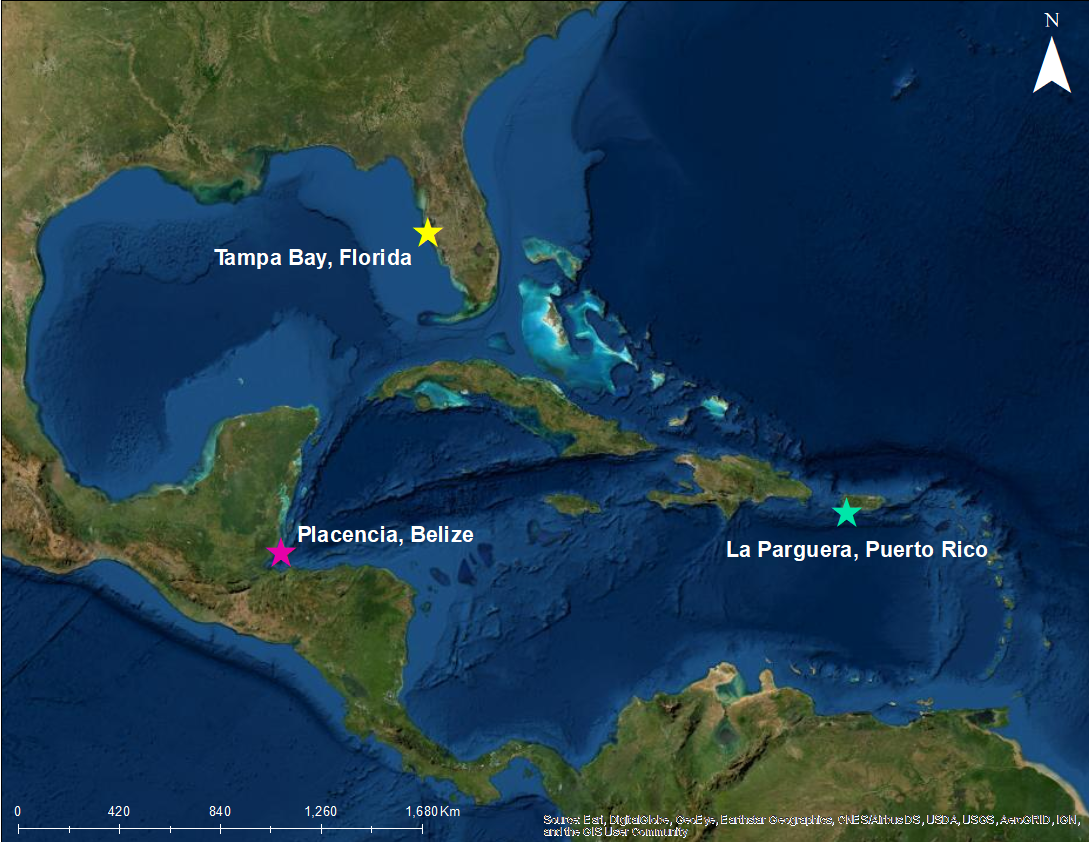Loretta Roberson is Funded to Implement Seaweed Farms for Biomass Production

MBL scientist Loretta Roberson has received a grant from the U.S. Department of Energy Advanced Research Projects Agency – Energy (ARPA-E) to implement designs for sustainable, large-scale tropical seaweed farms for the production of biomass for biofuels. Roberson’s team developed the farm designs with previous funding from the agency.
The project’s team includes partners from 15 institutions that will test a seaweed farm system designed to drastically reduce labor costs through mechanization. The system can also be deployed in offshore areas to greatly expand large-scale production and increase biomass yield per dollar of capital. The ultimate goal of the project is to cost-effectively produce seaweed biomass in underutilized areas of the Gulf of Mexico and in tropical U.S. Exclusive Economic Zones, where year-round production is possible.
 Site map for the project's implementation of large-scale seaweed farms. Courtesy Loretta Roberson
Site map for the project's implementation of large-scale seaweed farms. Courtesy Loretta RobersonThe MBL team will investigate opportunities to deploy an experimental farm in Puerto Rico where a wide range of exposure to prevailing winds and waves creates an ideal testbed to understand the influence of environmental conditions on biological, physiological, and chemical properties of cultivated seaweed. If successful, the project can disrupt the current practices in the red macroalgae market (it is primarily grown by manual labor in Southeast Asia), reduce reliance on imports from foreign sources, and ultimately scale to production levels relevant for bioenergy production. Cultivated seaweed can also provide other essential services, such as removing excess nutrients, like nitrogen, from seawater and drawing down carbon from the atmosphere.
The MBL is one of seven teams selected for continued funding in the Macroalgae Research Inspiring Novel Energy Resources (MARINER) program.
A website dedicated to the MBL project is here.
Roberson is an associate scientist in the Eugene Bell Center for Regenerative Biology and Tissue Engineering.
The MBL project’s partners include CA Goudey & Associates, Cascadia Research Collective, Center for Research and Advanced Studies of the National Polytechnic Institute (“CINVESTAV”) Merida, Makai Ocean Engineering, Pacific Northwest National Laboratory, Rutgers University, The Nature Conservancy, Two Docks Shellfish, LLC, University of California Irvine, University of California Santa Barbara, University of Connecticut, University of Puerto Rico Mayaguez (CariCOOS), University of Puerto Rico Rio Piedras, and the Woods Hole Oceanographic Institution.